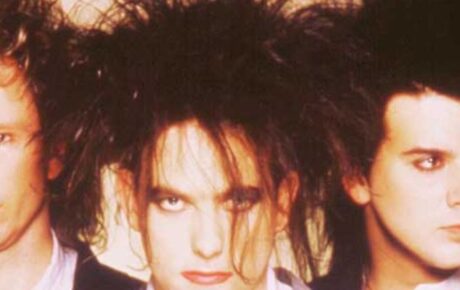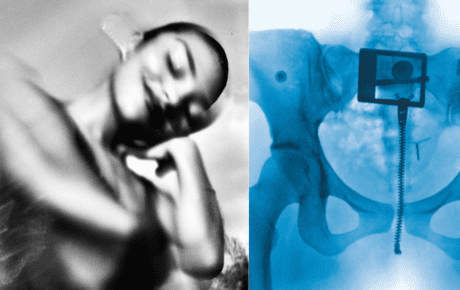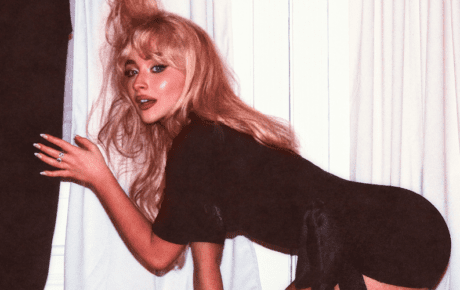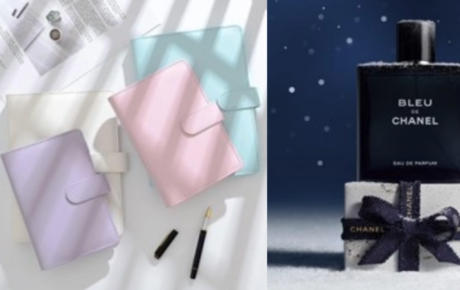With her vocal swagger and onstage charisma, Amy Winehouse was one of the most talented artists in a generation. The amalgamation of her soulful 1970s vocals, bouffant hair, and thick cat eye makeup gave her a commanding presence that helped thrust her into the music scene in the early aughts. The UK songstress was able to make a splash by blending soul, jazz, and hip-hop into pop hooks, and her public persona – and the controversy that surrounded it – helped turn her into a household name.
Despite battling personal issues and tumultuous relationships in the media, Winehouse made an enormous impact on the music scene throughout her short life. And it wasn’t ignored: For her 2007 album Back to Black, she amassed six Grammys – including Album of the Year – for her brutally honest, self-critical songwriting and expressive vocals. From musing about her turbulent love life to arguing about why she won’t go to rehab, Winehouse produced a melancholic, sexy, and self-confident catalog of pop songs that have remained timeless.
The Hits
Rehab, You Know I’m No Good, Back to Black, Tears Dry On Their Own, Love Is a Losing Game
While Amy Winehouse had dropped her debut album Frank in 2003, it wasn’t until the release of her 2006 sophomore LP Back to Black that the singer-songwriter had landed her first Top 10 hit. Part of what made Winehouse such an alluring artist was her unwavering candor, and her first Top 10 single, “Rehab,” offered just that. Winehouse’s fervent defiance about her substance issues paired with her syrupy pop hooks helped “Rehab” land at No. 9 on the Billboard Hot 100 chart.
It wasn’t long until Winehouse’s momentum took over with “You Know I’m No Good,” which quickly became a radio staple. The buzzy track – which magnified the self-loathing and desolation she found herself in as her relationship went from bad to worse – earned praise for its brassy vocals and playful horns, as well as a spot at No. 77 on the Hot 100 chart.
Inspired by the split from her then-husband, “Back to Black” finds Winehouse spiraling into nihilistic abandon but wrapped in 60s girl group harmonies and symphonic strings.
Leaning into the Motown sound, Winehouse crafted the fourth single from Back to Black around the Marvin Gaye and Tammi Terrell’s 1967 classic “Ain’t No Mountain High Enough” for the wistful, mid-tempo “Tears Dry On Their Own.” While her final single, “Love Is a Losing Game,” marked the culmination of her heartache, but it has since lived on as a favorite for artists like Prince and Sam Smith to cover in the years since her passing.
The Covers
Valerie, Will You Still Love Me Tomorrow?, Cupid, It’s My Party
Not every artist can pull off the art of making a cover as good (if not better than) the original. But Winehouse’s gritty, powerhouse vocals and charm pulled it off. With “Valerie” – a song originally recorded by English indie rockers The Zutons in 2006 – it was near-impossible to believe that the song wasn’t her’s, let alone Mark Ronson’s cover with an assist from Winehouse. Thanks to the singer’s bluesy vocals, Winehouse and Ronson’s rendition of “Valerie” soared to No. 2 on the UK Singles Chart in 2007.
Though Winehouse could make any cover sound like it came straight out of Phil Spector’s studio, she did rework a girl group classic with her cover of The Shirelles’ “Will You Still Love Me Tomorrow?” The singer’s ability to make a classic sound like an original was once again put front-and-center with the stripped-down rendition of the track in 2004.
For the deluxe version of Back to Black, Winehouse delivered a slow-burning ska cover of Sam Cooke’s 1961-penned track “Cupid” that was a departure from the R&B-tinged pop songs she had become synonymous with.
Her final single before her passing was a twist on Leslie Gore’s 1963 pop hit “It’s My Party,” which appeared on Quincy Jones’ compilation album Q: Soul Bossa Nostra. Backed by bold horns, Winehouse reworked the track’s vocals to have even more of an overdramatic flair backed by bold horns.
Relationship Entanglements
Between the Cheats, Stronger Than Me, Some Unholy War, In My Bed, You Sent Me Flying, Me & Mr. Jones
Throughout her brief career, she perfected the art of the kiss-off, as the best Amy Winehouse songs attest. Whether it was a cheating ex or someone trying to tell her what to do, the singer never held back her feelings. “Between the Cheats” – a song from Winehouse’s posthumous collection Lioness: Hidden Treasures – is an impassioned, doo-wop-soaked ditty filled with contempt for a cheating lover and Winehouse’s crippling despair.
But years before this track was released, Winehouse proved she was wise beyond her years with the biting “Stronger Than Me,” as she laments an older lover who isn’t the kind of partner who can take care of her.
As a foil to “Stronger Than Me,” Winehouse admits to having her ego bruised when she met the same, older man on “You Sent Me Flying.” But the song is a standout for how Winehouse was able to put her own spin on the traditional piano ballad, adding hip-hop flair to the beat.
The smoky, gospel-tinged “Unholy War” is Winehouse’s stream of consciousness at work as she details the helplessness she felt while watching her husband battle his own mental health issues.
On the other side of the spectrum, the UK-exclusive single, “In My Bed” sampled Nas’ 2002 hit “Made You Look” to create an R&B track flanked with brass about two lovers who can only agree when they’re in bed. Winehouse’s affinity for Nas is a throughline in her career. On “Me & Mr. Jones,” Winehouse concedes to being one of the rapper’s many side-chicks and despite that, still remains loyal to him.
Hip-Hop Collaborations
B Boy Baby, Cherry Wine, Like Smoke
Winehouse was clearly a student of jazz and hip-hop and her playful way with words reflected her love for both. Her jazz-inspired phrasing and antagonistic spirit made her many fans in the hip-hop community as the Lioness tracklist indicates, featuring contributors like Mos Def, Ghostface Killah, Jay-Z, and more.
Though she wasn’t officially credited, Winehouse also lent her vocals to Mutya Buena’s single “B Boy Baby” in 2007, which borrowed melodies and lyrics from The Ronettes’ “Be My Baby.” The two shared a common collaborator, with Salaam Remi producing the former Sugababe’s debut album.
While Winehouse’s lithe vocals were posthumously featured on Nas’ 2012 track “Cherry Wine” after her passing, the video featured images of Winehouse projected onto a bar wall and the song earned a Grammy nod for Best Rap/Sung Collaboration in 2013.
Unsurprisingly, the first single from the posthumous collection of Winehouse’s work was another song with Nas, “Like Smoke.” While the rapper takes the lead on the mid-tempo hip-hop track, Winehouse’s theatrical flourishes hang off the chorus.
Playful Tracks
Addicted, F__k Me Pumps
While many of the best Amy Winehouse songs spoke of romance gone wrong, co-dependency and addiction, she also had a wicked sense of humor that shone through many of her self-deprecating lyrics.
Winehouse pokes fun at herself for her love of weed in the drum-flanked “Addicted.” There’s a playfulness to how she conflates her desire with weed to sex that allows Winehouse to let herself not be taken so seriously.
On the bouncy “F__k Me Pumps,” she uses her jazzy lilt to take a break from the ruminations of her mind to indict all the women who dress up just to chase Footballers at the club. Co-written by Rami and Winehouse, she joked the song was the result of “two bi__hy people in one room.” Winehouse could sling lyrical barbs with a certain dexterity, but she was often caught in her own crosshairs when it came to her lyrics.
Article originally published on uDiscoverMusic.com.
SEE ALSO: 10 Poignant Amy Winehouse Quotes












